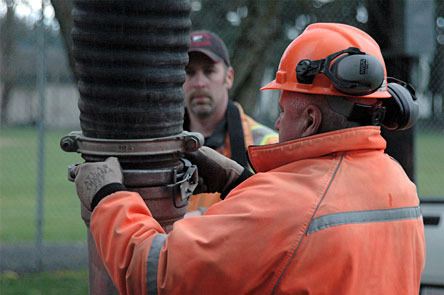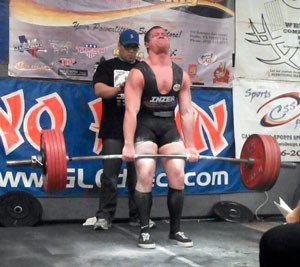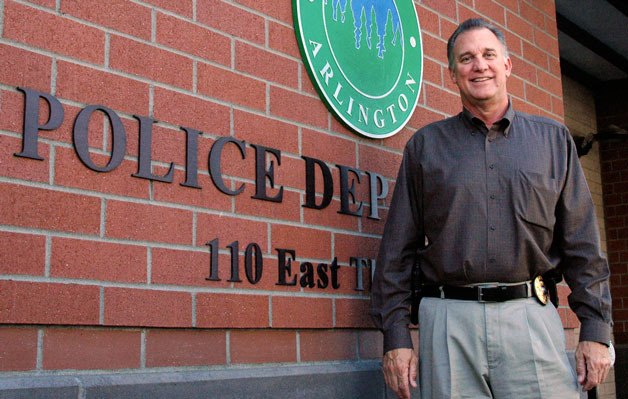ARLINGTON — The calls always happen at night for Earl Anderson.
The city of Arlington’s lead water distribution specialist is used to being woken up at 2 a.m. to respond to a water main breaking, a sewer plugging up or other untimely emergencies.
Although he’ll admit that those calls are a part of the job, a gently used piece of equipment should allow him to sleep more soundly.
The city of Arlington recently purchased a 1996 vactor truck to help public works and streets maintenance staff take care of certain emergencies and projects in-house.
“I sleep a lot better at night,” Anderson said. “In the past, we’ve had to call (other agencies). With this, you don’t have to wait. It gets customers back in service faster.”
The truck, which has a number of uses ranging from clearing clogged pipes to quickly sucking dirt and material out of the ground for a hole, was purchased from the city of Bellevue in February with a $50,000 Washington state Department of Ecology grant.
According to a memo, the city spent approximately $180,000 on vactor services between 2006-2008. That cost rose to an estimated $140,000 in 2009 due to the abundance of sand city staff used to clear Arlington roadways, which had to be cleared once the snow melted last winter.
“This truck will pay for itself in a year,” said Leroy Mills, public works maintenance and operations manager. “We’ve already saved $8,000 in a month compared to contracting.”
Vactor services in the past have been provided by Cuz Concrete and Septic Services, Pro-Van and Snohomish County.
Because the city now has its own vactor truck, water and sewer department employees can take care of most of those services on their own, said public works director Jim Kelly.
“Everybody can share this piece of equipment,” Kelly said.
Since the purchase, city staff have been trained on how to use the Freightliner truck. The vehicle consists of two main parts — a water hose to flush material and a large vacuum that collects debris into the truck’s storage tank.
The result is a portable hydro-excavator that staff can use for a number of projects and emergencies, including digging holes for fire hydrants.
Since the vactor truck doesn’t physically drill into the ground — it uses a combination of water pressure and suction — what would normally take days with a backhoe can be done within hours, Kelly said.
“You can be really surgical,” Kelly said.







